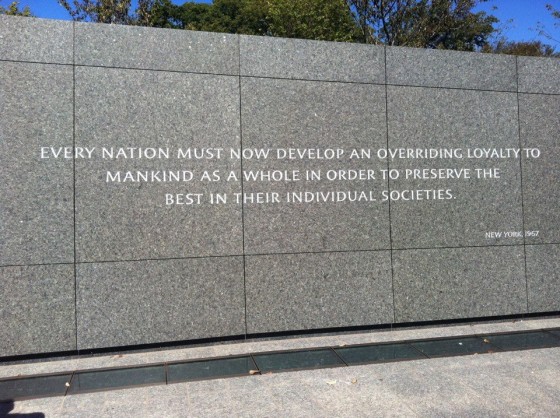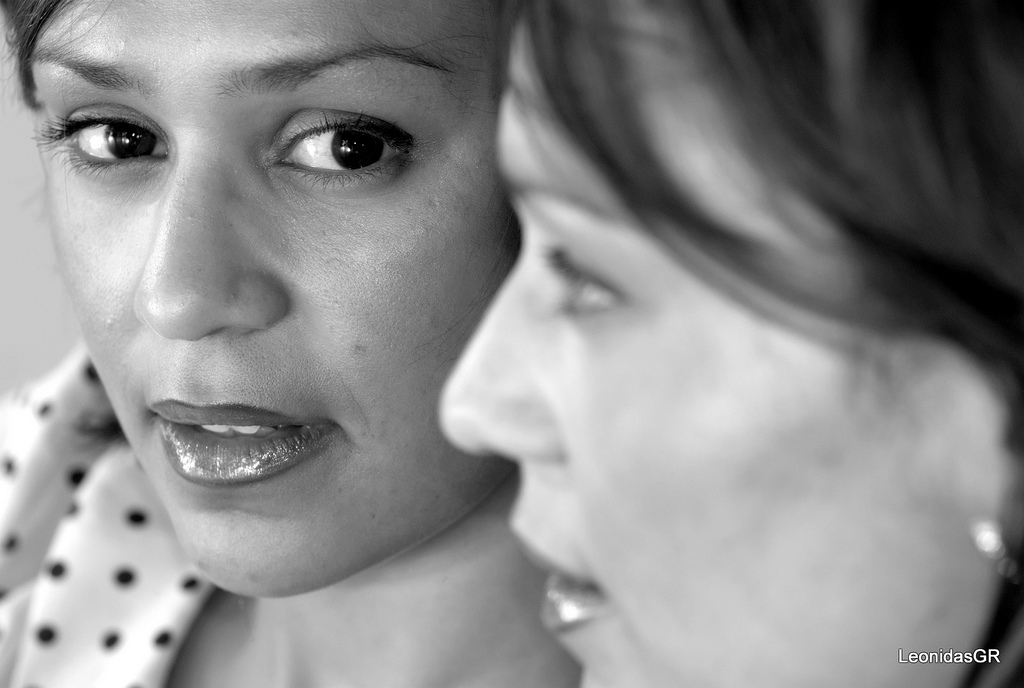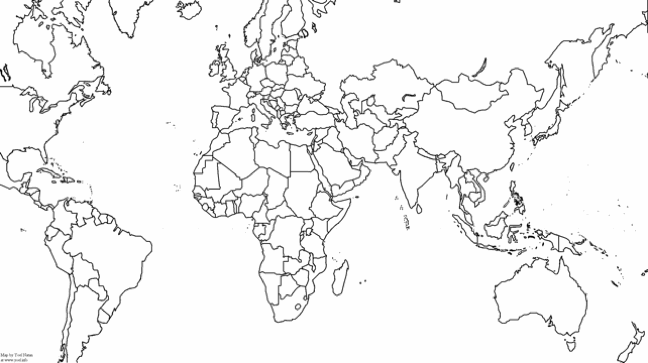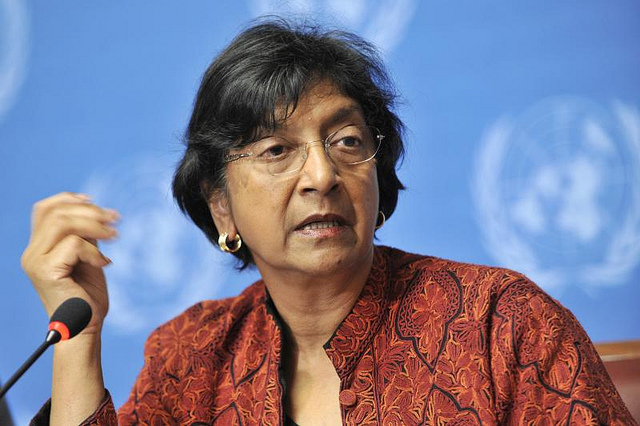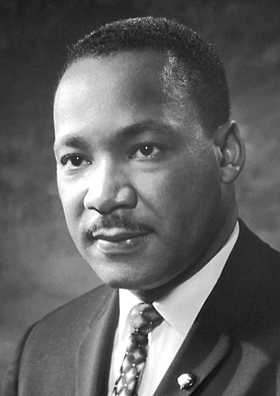foreignness
Much of what is published on this site relates directly to the question of foreigness: or thinking of people as being "foreigners". Because of its pervasiveness it is important to challenge the assumption that it is OK to treat non-citizens differently - that they are somehow less entitled to human rights. Many articles explore how we unconsciously think in this way.
-
An environment without foreignness
We know better than to leave the water running as we brush our teeth. We understand the importance of switching off the light before we leave the room. And we appreciate the reasons behind separate waste bins for plastics, metals, and burnables. Although there of course remains ample room for improvement and growth, societies throughout the world today have begun to recognize the dire threat that excessive consumption, rampant wastefulness, and climate change in general pose to our global neighbourhood, and we have come see the significance of small individual efforts in working to create a more sustainable future. Yet perhaps lurking beneath our noble consciousness of the need to…
-
Lush – cosmetic or real
By Rahila Gupta. The EU is on the point of turning its back on the Schengen agreement. Welcome to the World Passport: ‘this document confirms that its bearer is a human being, and not an alien’. Rahila Gupta reports on the campaign for open borders From 23 May, Lush, the ethical cosmetics business will run a week-long campaign for open borders, distribute a broadsheet on immigration produced by the group No One is Illegal (NOII) and stock the inspiring book Open Borders by Teresa Hayter throughout their network of 90 stores in the UK. The campaign itself will kick off with Aaron Barschak and members of NOII attempting to board…
-
Imagined foreignness
In our modern world, it is often the nation-state that acts as the locus from which conceptions of foreignness arise. It is to one (or more) of the 190-plus countries into which the globe has been carved up that we claim allegiance and tie our identities. Our passports, legal documents that represent our affiliation with a certain political establishment, act as reifications of our sense of belonging. We interpret the question “Where are you from?” as “Which country are you from?”, and we respond accordingly. And then, just as we use the country to which we belong as a means of identifying with people of the same nationality, we also…
-
UN High Commissioner for Human Rights in Australia
As, UN High Commissioner for Human Rights, Navi Pillay, today acknowledged there are a lot of human rights positives for Australia, but there were two issues on which Australia’s record is troubled: Australia’s treatment of indigenous Australians and asylum seekers. “In my discussions with Aboriginal people, I could sense the deep hurt and pain that they have suffered because of government policies that are imposed on them. I also saw Aboriginal people making great efforts to improve their communities, but noted that their efforts are often stifled by inappropriate and inflexible policies that fail to empower the most effective, local solutions. I would urge a fundamental rethink of the measures being…
-
Foreignness: a primary problem
Image from freefoto.com One of the obstacles we face as a global society working to abolish foreignness is the perception of foreignness as only an ancillary problem, or a problem that is secondary to more critical and pressing global issues. Rather than deal with the question of the abolition of foreignness head-on, we seek to address the problem through proxies, hoping prejudice and hate and bias will simply go away if we first address the more material problems that supposedly underlie them. If we only do away with educational inequalities inner city schools, one argument might go, then racial tensions will be resolved. If we seek to address climate…
-
Why Global Citizenship?
1. Introduction Plutarch said: … nature has given us no country as it has given us no house or field. … Socrates expressed it … when he said, he was not an Athenian or a Greek, but a citizen of the world (just as a man calls himself a citizen of Rhodes or Corinth).[1] Plutarch urged his audience to become conscious of a wider reality and to exercise their imagination to overcome a narrow, localised conception of their identity. That is the role of my global citizenship claim too. Plutarch and Socrates did not conceive of the world as a globe,[2] as I do: I have travelled across the world;…
-
Can we be foreign to our own selves?
It is a question with which we are forced to grapple these days. As shocking natural disasters rock the world, we look to each other, but we also look to ourselves, suddenly finding in our own lives transience and fragility. We consider anew what matters and what does not matter. We ponder and we question and we ponder some more, hoping for answers but wondering where they are within our own selves. And we wonder how well we even know ourselves. Of course, the question of who we are as individuals is hardly a recent one in our collective consciousness. Self-discovery is and always has been a recurring theme in…
-
Tragedy knows no foreignness
Sometimes it is tragedy that reminds us of the most fundamental human truths. Last week, the world community witnessed the devastation that came upon Christchurch. Nations across the world now hope for and contribute to a swift process of rebuilding and rehabilitation, and they join New Zealand in mourning the victims of this terrible disaster that shook the nation. And of those countries feeling the pain of the Christchurch earthquake, Japan in particular mourns deeply. Among the 100-plus victims still buried under the rubble of the collapsed CTV building in downtown Christchurch are more than twenty Japanese exchange students who were studying English in New Zealand. Their status, along with…
-
At home with foreignness
We all come from somewhere. It’s an unavoidable fact of life. It’s similarly unavoidable that we have some sort of emotional connection to that part of the planet we call home. For some, it’s a deep sentimental attachment. For others, it’s a set of memories that they’d prefer to keep in the past. Regardless, there is no denying the power of the concept of “home” in the human imagination. But if we abolish foreignness, do we lose our sense of home? It does not necessarily follow that we do. Patriotism or love of one’s area of origin is a natural human emotion, one that is not to be denied or…

